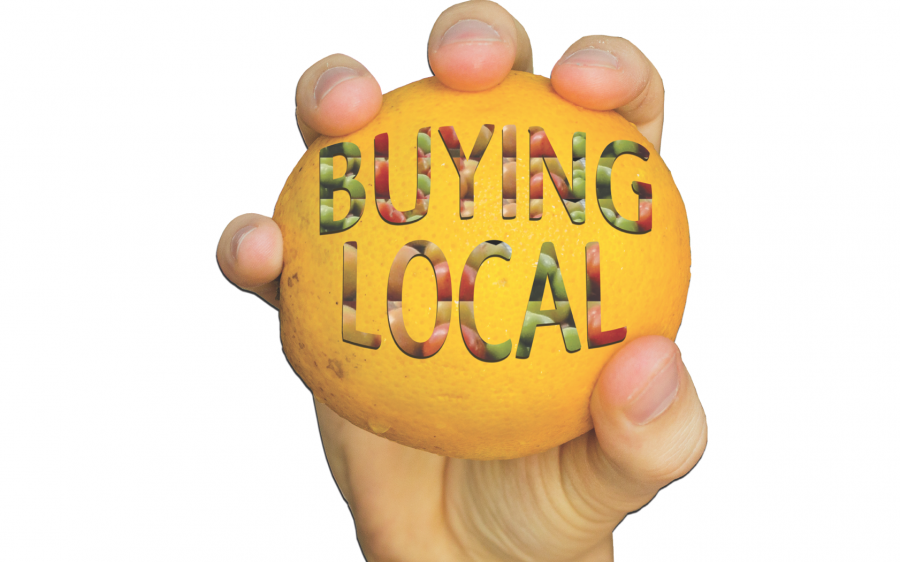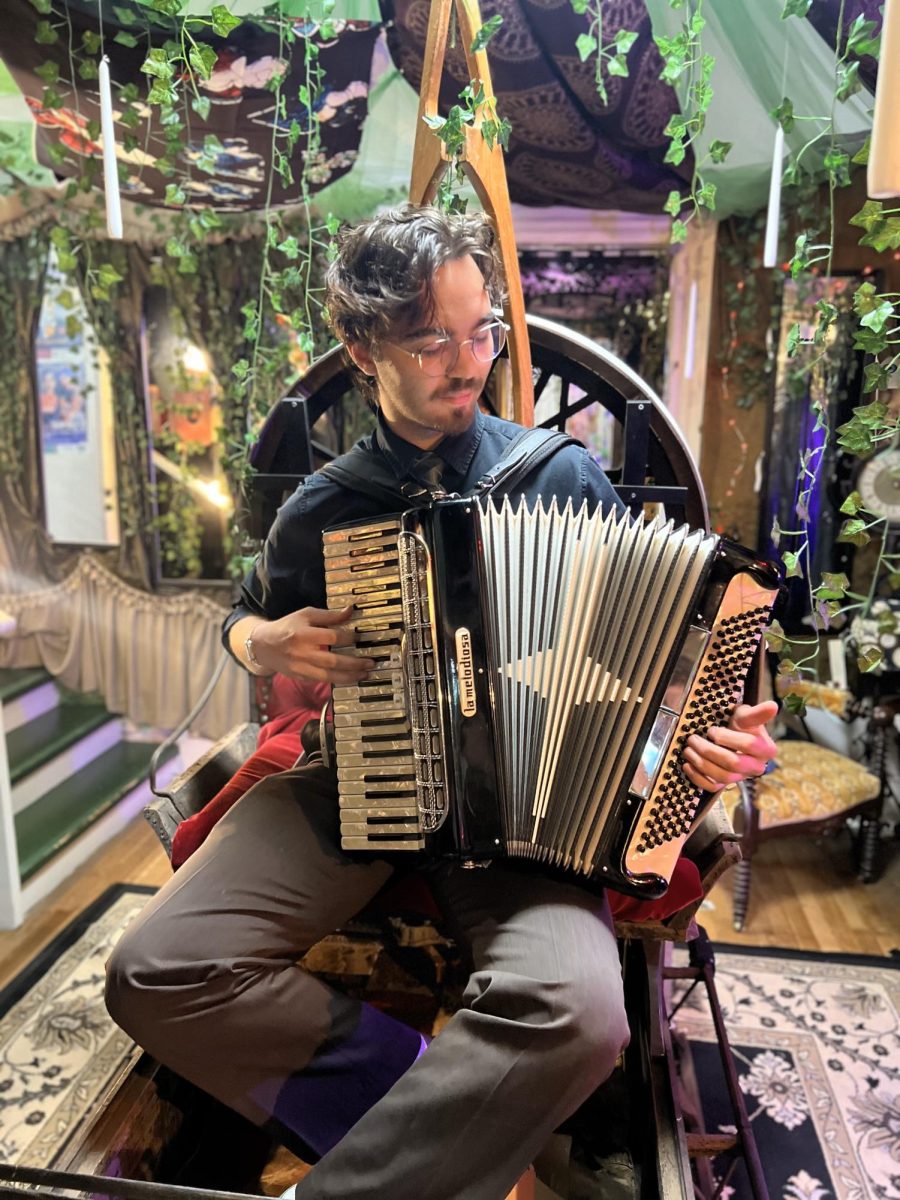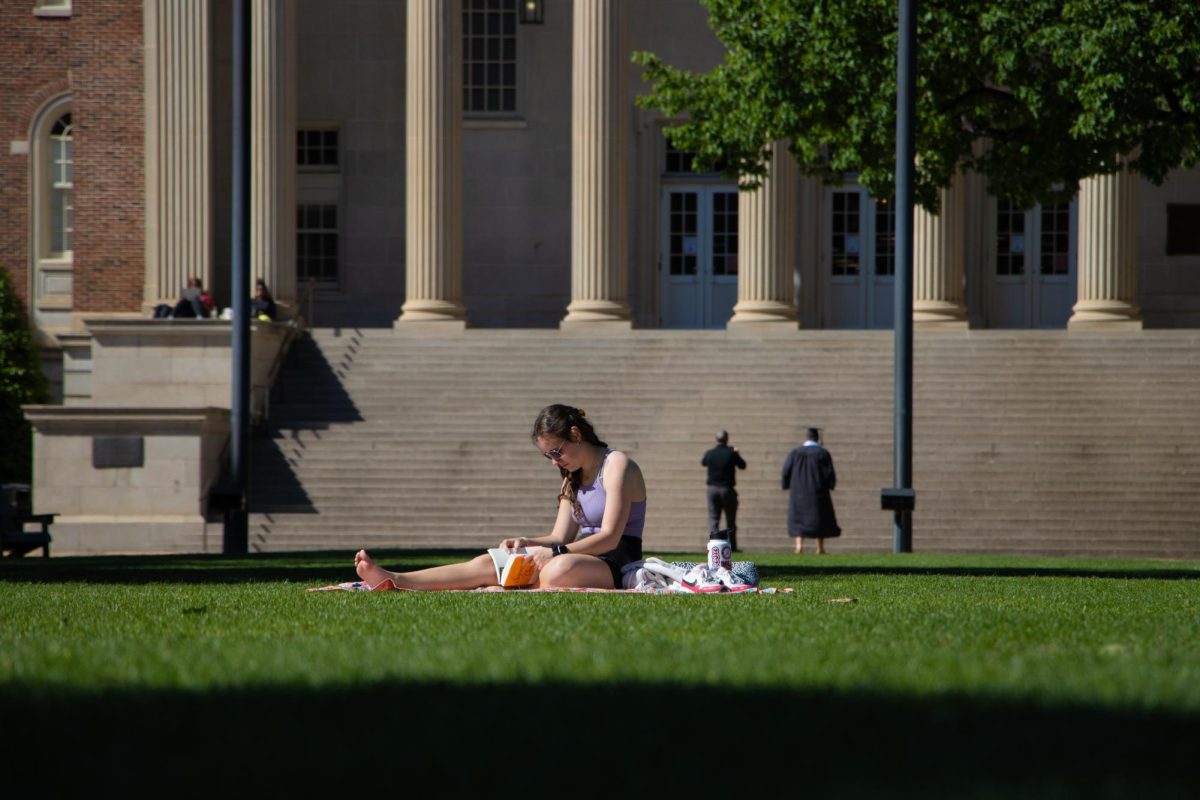By Abbey Crain and Becky Robinson
Sonja Rossow, art professor at The University of Alabama, decided to buy all local and organic produce one year ago. She said in those 12 months, she has found Tuscaloosa to be relatively adaptive to her needs.
“My main reason for buying local food is simply number one to support the local economy,” Rossow said. “I think it’s really important that we do that kind of thing because you’re giving farmers a chance to do what they love to do: working on a farm.”
Rossow always had an interest in farmers markets but recently began educating herself on the importance of buying local for health, economic and environmental reasons.
“To me, the big thing is we are becoming more environmentally aware of what we are doing to our planet,” Rossow said. “The word is out that these big agrobusinesses don’t care about what they’re feeding us but just their profit margin.”
Rossow now has a personal relationship with many farmers at the three farmers’ markets in the Tuscaloosa and Northport areas, as well as farmers closer to her hometown in Prattville, Ala.
“It brings together a sense of community, so you’re not just buying from a big retailer, but you get to know the people who own the farm, what they produce and how they produce it,” she said.
Even local businesses have started tailoring their menus to include more local produce.
Tres Jackson, owner of Epiphany, a farm-to-table restaurant on Greensboro Avenue, said he also recognizes the importance of supporting local farmers. Jackson said local farmers are more abundant than they were 10 years ago when he first opened the restaurant.
“It’s really just come full circle to what it was 70, 80, 100 years ago,” Jackson said. “My grandparents grew and sold vegetables, shelled peas, canned preserves and things like that. That was before you had mass transport and 18-wheelers and food warehouses. That was what people did. They ate locally and regionally, and it’s kind of turned back to that.”
Jackson buys a majority of his food from Snow’s Bend Farm in Coker, Ala. The farm sells seasonal produce and whole, grass-fed hogs to individuals and restaurants.
“Basically, you know where things are coming from,” Jackson said. “You know who’s raising it and how they’re raising it. Whereas if you get it off a big truck, it might have been sitting there for two weeks. You don’t know what was done with it, rather than someone 10 minutes away, who brings it to you themselves. There’s a lot more intimacy to it [and] respect for the ingredients.”
Jackson changes Epiphany’s menu according to what ingredients are seasonal. He said this forces the food-making process to stay creative, accenting a dish with meats rather than having a meal revolve around it.
Mo Fiorella, a UA graduate student studying book arts, said buying local allows patrons to learn about what is in their food, eliminating the “surprises” larger distributors often include in processed foods. She also manages the Homegrown Alabama student group.
“There are a few ways to look at buying and eating locally,” Fiorella said. “When you buy local, you’re putting money back into your own community. You’re also buying something from close by, which means it hasn’t traveled very far and should be very fresh, so eating local tastes better.”
Fiorella said she believes Tuscaloosa’s local produce niche is ever-growing.
“More and more businesses are realizing the appeal of local, and it extends beyond farmers markets,” Fiorella said. “I think that because it is becoming easier to buy local food, more people are developing relationships with their farmers and artisans and are becoming more aware of what it means to be local.”
In addition to the three community-acclaimed farmers markets in Tuscaloosa, a new all-local store called Alabama Goods opened on the Strip in April.
Sherry Hartley, a Birmingham native, began Alabama Goods with her business partner in 2007. Since its conception, it has expanded from an online store to two physical stores in Tuscaloosa and Birmingham.
After opening in April, Hartley said she thinks the store will thrive in the Tuscaloosa community.
“We were looking for a business to start, and we were talking about what the gaps in the marketplace are,” Hartley said. “[We] identified that there really was not a source that someone could go to either a store or individuals to buy a good selection of things made in Alabama.”
Alabama Goods has local handmade art and crafts, as well as a large selection of locally made jellies, honey, cookies, BBQ sauces and nuts.
The honey from Alabama Goods comes from beehives in Alabama. Jackson said this honey is healthier than the honey in big supermarkets, especially when used for treating certain pollen allergies.
“It’s fresher, and it’s healthier,” Jackson said. “Honey you find in grocery store shelves comes from several different countries.”
Jackson hopes to highlight local gems in the state through Alabama Goods.
“The great factor about our store is that there is so much talent in Alabama and we have things all throughout the state that are made in the state that are reflective of the essence and the charm of [Alabama],” Jackson said.
Rossow said she is not the only one to notice the advantages of buying local food. Restaurants and grocery stores are noticing the trend, and some are starting to cater to the informed.
“People are becoming more aware and wanting to have that sense of place that they know they can go to their farmer and find out when, where and how this is produced,” Rossow said.
The Homegrown Alabama market is open every Thursday in April through October from 3 to 6 p.m. at Canterbury Episcopal Chapel. The Tuscaloosa River Market is open every Tuesday and Saturday from 7 a.m. to noon.









